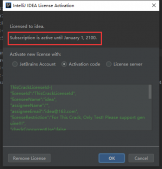本文实例讲述了smarty模板引擎基础知识。分享给大家供大家参考。具体如下:
一、基本概念
1.什么是mvc?
mvc是一种开发模式,核心思想是:数据的输入、数据的处理、数据显示的强制分离。
2.什么是smarty?
smarty是一个php的模板引擎。更明确的来说,它可以帮助开发者更好的分离程序逻辑和页面显示。
3.smarty运行原理
模板文件,就是一个显示数据的模板,其中需要显示的数据用占位符代替。
smarty运行时,会读取模板文件,将模板文件中的占位符替换成真正的数据,并输出一个处理后的php文件,交由服务器运行。
二、自己写一个smarty模板
为了更好的理解smarty模板,现在自己先写一个自己的smarty模板-minismarty,让自己更加深入的了解smarty运行原理。
1.新建项目minismarty
新建模板文件路径:templates
新建模板文件被编译后的文件路径:templates_c
新建模板文件:intro.tpl
新建运行的文件:index.php
新建自己的smarty,即处理模板的文件:cls_MiniSmarty.php
2.编写index.php文件
|
1
2
3
4
5
6
7
8
9
|
<?php require_once './cls_MiniSmarty.php'; $miniSmarty = new MiniSmarty(); //传递数据 $miniSmarty->assign("title","hello minismarty!"); $miniSmarty->assign("content","<font color='red'>this is content!</font>"); //传递数据到哪个页面显示 $miniSmarty->display("intro.tpl");?> |
3.编写intro.tpl文件
|
1
2
3
4
5
6
7
8
9
10
11
12
|
<!--这是个模板文件--> <html> <head> <meta http-equiv="Content-Language" content="en" /><meta name="GENERATOR" content="PHPEclipse 1.0" /><meta http-equiv="Content-Type" content="text/html; charset=iso-8859-1" /><title>{$title}</title></head><body bgcolor="#FFFFFF" text="#000000" link="#FF9966" vlink="#FF9966" alink="#FFCC99">{$content}</body></html> |
这里面的内容是用占位符的形式,smarty的作用就是将占位符的内容替换成真正的数据。
这样就可以实现模板文件和数据文件强制分离,通过smarty进行数据的传递。
4.编写cls_MiniSmarty.php文件
|
1
2
3
4
5
6
7
8
9
10
11
12
13
14
15
16
17
18
19
20
21
22
23
24
25
26
27
28
29
30
31
32
33
34
35
36
37
38
39
40
41
42
43
44
45
46
47
48
49
50
51
52
53
54
55
56
57
58
59
60
61
62
63
64
65
66
67
|
<?php /** * * 原本是通过smarty模板引擎给模板提供数据的 * 现在自己模仿写一个模板,给模板提供数据的类 * smarty运行时,读取模板文件,将模板文件替换成可运行的php文件 * 服务器真正运行的文件是处理后的文件 */class MiniSmarty { //模板文件路径 var $template_dir = "./templates/"; //模板文件被替换后的文件路径 var $templates_c_dir = "./templates_c/"; //存放变量值 var $tpl_vars = array (); //主要模拟2个方法 /** * 添加数据 * 参数1:键 * 参数2:值,默认为null */ function assign($tpl_var, $var = null) { if ($tpl_var != '') { $this->tpl_vars[$tpl_var] = $var; //将数据添加到数组中 } } /** * 显示数据 * 参数1:显示到哪个模板文件中 */ function display($tpl_file) { //获得模板文件的路径 $tpl_file_path = $this->template_dir . $tpl_file; //获得模板文件被编译后的文件路径 $compile_file_path = $this->templates_c_dir . "com_" . $tpl_file . ".php"; //判断文件是否存在 if (!file_exists($tpl_file_path)) { return false; } //不用每次都生成编译文件,只有编译文件不存在或者模板文件被修改了才生成新的编译文件 //相当于缓存了编译文件 //filemtime函数:获得文件的生成时间 if (!file_exists($compile_file_path) || filemtime($tpl_file_path) > filemtime($compile_file_path)) { //读取模板文件的内容 $fpl_file_content = file_get_contents($tpl_file_path); $newStr = myReplace($fpl_file_content); //将替换后的字符串生成新的文件,也就是编译后的文件 file_put_contents($compile_file_path, $newStr); } //引入编译后的文件 include $compile_file_path; } /** * 对模板文件中的内容进行替换,获得新的字符串 */ function myReplace($fpl_file_content) { $pattern = array ( '/\{\s*\$([a-zA-Z_][a-zA-Z0-9_]*)\s*\}/i' ); $replace = array ( '<?php echo $this->tpl_vars["${1}"] ?>' ); $newStr = preg_replace($pattern, $replace, $fpl_file_content); return $newStr; } } ?> |
preg_replace方法介绍:
参数1:替换的规则
参数2:替换成的内容
参数3:替换操作的内容
5.运行结果
标题和内容都显示出来了:

结论:
真正运行的文件,既不是index.php,也不是intro.php,而是二者通过smarty作用后的文件:
com_intro.tpl.php。这个文件中数据来源于index.php,显示的布局来自intro.tpl,中间的桥梁是smarty。
smarty的作用是接受数据、填充数据(替换模板中的占位符)、并加载替换后的文件。
三、讲解smarty使用细节
1.如何配置smarty?
解压后,将libs文件夹拷贝到项目目录下即可,然后再创建2个文件夹templates和templates_c,分别放模板文件和模板编译后文件。
2.使用smarty注意事项
①替换变量的标示符。
因为默认的表示符是{}这个和style样式中的{}发生冲突,所以需要修改一下默认的标识符,一般修改为:{<>}
②修改标识符的方法。
方法一:直接修改smarty类源码:不推荐。
方法二:使用smarty提供的方法进行修改。
|
1
2
|
$smarty->left_delimiter="{<";$smarty->right_delimiter=">}"; |
③smarty的一些基本配置
|
1
2
3
4
|
$smarty->template_dir="./templates";//模板路径$smarty->compile_dir="./templates_c";//编译路径$smarty->caching=false; //是否使用缓存$smarty->cache_dir="./smarty_cache";//如果使用缓存的话:缓存的路径 |
3.smarty模板技术分配变量的细节问题
一句话:可以分配php支持的各种数据。
php基本数据:int double string bool
复合数据类型:array object
特殊数据类型:resource null
希望本文所述对大家的php程序设计有所帮助。





